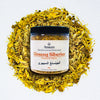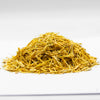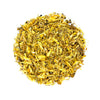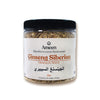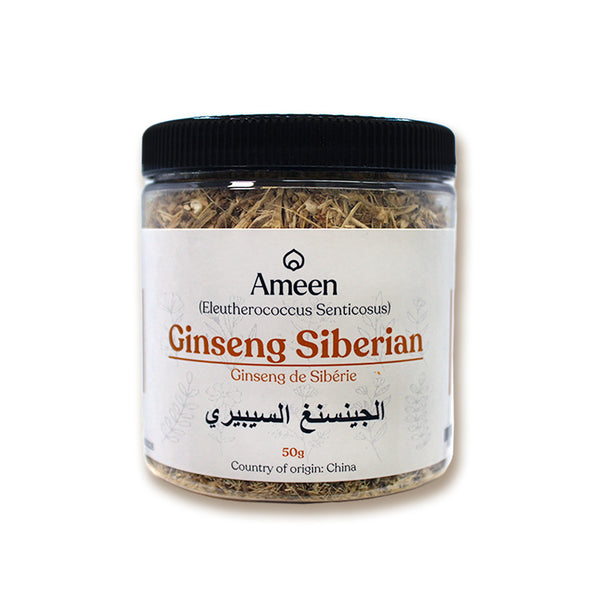Siberian Ginseng, botanically classified as Eleutherococcus senticosus, is a woody-rooted plant native to Northeastern Asia, valued for its adaptability and historic role in herbal traditions. Recognized for its slender stems, small dark berries, and spiky leaves, this resilient herb has long been incorporated into natural wellness routines across Russia, China, and Korea.
Culinary and Herbal Uses of Siberian Ginseng
Although not related to true ginseng (Panax species), Siberian Ginseng shares many of the same applications:
-
Herbal Teas: Dried root slices or powder can be steeped to create a rich, earthy infusion.
-
Tinctures and Extracts: Used in traditional preparations for those looking to support balance and vitality in their daily regimen.
-
Blends and Powders: Often found in wellness mixes and herbal formulations due to its harmonizing properties.
Why Choose Siberian Ginseng?
-
Flavor Profile: Mildly bitter, with woody and slightly earthy undertones.
-
Traditional Value: A long-standing herbal ally in Russian and East Asian wellness practices.
-
Versatility: Available in dried root form, powders, capsules, or tea blends.
Botanical and Cultural Identity
-
Botanical Name: Eleutherococcus senticosus
-
Common Names:
-
English: Siberian Ginseng, Eleuthero, Devil’s Shrub, Taiga Root, Russian Root
-
Chinese: 刺五加 (Ci Wu Jia)
-
Other Names: Acanthopanax senticosus, Siberian Eleuthero, Touch-Me-Not, Kan Jang, Ussurian Thorny Pepperbush, Wild Pepper, Eleuthera Herb
-
From Forest to Wellness
Siberian Ginseng remains a favored botanical in both traditional and modern wellness circles. Whether enjoyed as a grounding herbal tea or included in daily wellness routines, it reflects a legacy of resilience and renewal drawn straight from nature’s apothecary.

